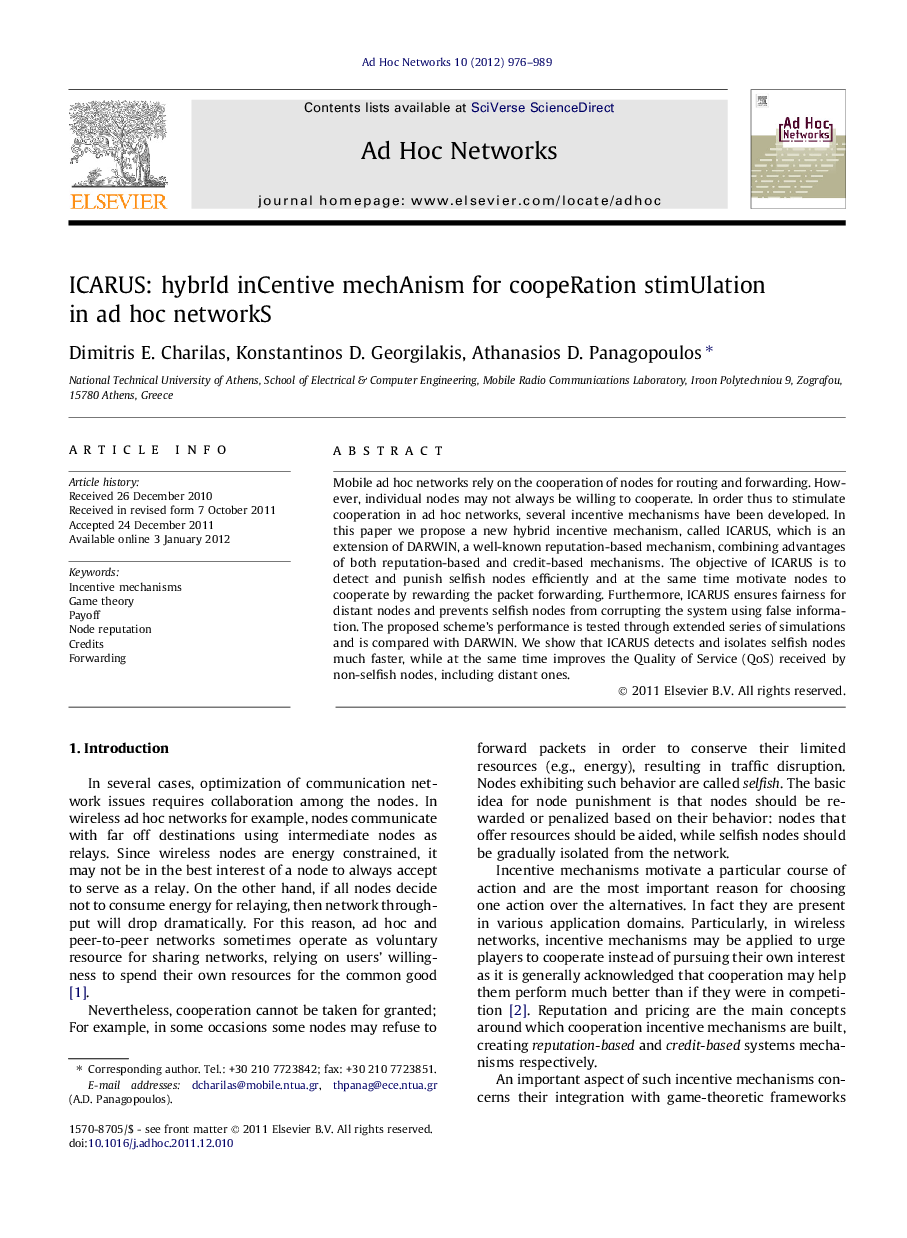| Article ID | Journal | Published Year | Pages | File Type |
|---|---|---|---|---|
| 446136 | Ad Hoc Networks | 2012 | 14 Pages |
Mobile ad hoc networks rely on the cooperation of nodes for routing and forwarding. However, individual nodes may not always be willing to cooperate. In order thus to stimulate cooperation in ad hoc networks, several incentive mechanisms have been developed. In this paper we propose a new hybrid incentive mechanism, called ICARUS, which is an extension of DARWIN, a well-known reputation-based mechanism, combining advantages of both reputation-based and credit-based mechanisms. The objective of ICARUS is to detect and punish selfish nodes efficiently and at the same time motivate nodes to cooperate by rewarding the packet forwarding. Furthermore, ICARUS ensures fairness for distant nodes and prevents selfish nodes from corrupting the system using false information. The proposed scheme’s performance is tested through extended series of simulations and is compared with DARWIN. We show that ICARUS detects and isolates selfish nodes much faster, while at the same time improves the Quality of Service (QoS) received by non-selfish nodes, including distant ones.
